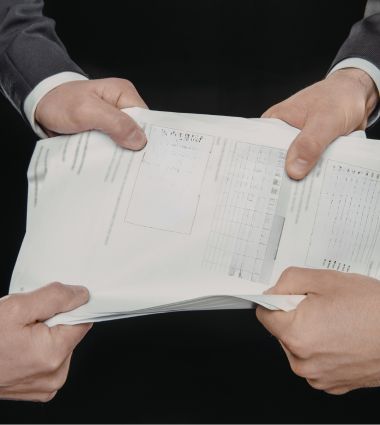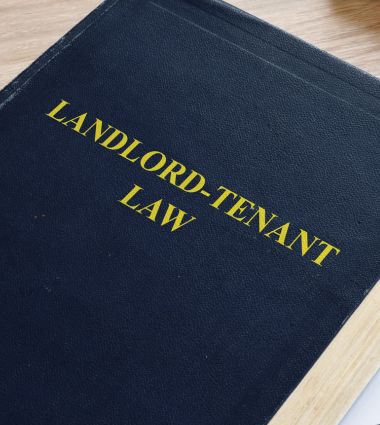Basic Requirements for Filing a Land Transfer Document in Ontario
Transferring property in Ontario comes with its own set of rules and paperwork. If you're dealing with a land transfer document, it's necessary to get everything right to make sure the property officially changes hands without legal hiccups. Whether you’re buying your first home or transferring property within the family, this blog breaks it all down into simple steps.
What Is a Land Transfer Document?
A land transfer document, often called a deed, is the official record that shows property ownership has been legally transferred from one person to another. Think of it like a receipt you get after buying something important, except this one is for property. Without this document, there’s no legal proof that the property now belongs to the new owner.
There are a few types:
- Transfer of Title: Common for straightforward property sales.
- Deeds of Land: Typically used in complex situations, like estates or trusts.
The Basics of Land Transfer Documents
At its core, a land transfer document is a detailed legal form. It includes essential information such as:
- The names of the buyer and seller.
- The legal description of the property. This isn't just the address; it includes specific details like lot boundaries.
- The terms of the transfer, like the sale price and date.
In Ontario, these documents are filed with the Land Registry Office, making the transfer official and accessible for public record.
Types of Land Transfer Documents
There are two main types you’ll encounter:
-
Transfer of Title:
This is the most common type. It’s used in straightforward transactions like when someone buys a home. For example, if you purchase a semi-detached house in Toronto, the transfer of title is the paperwork that seals the deal and makes the house yours.
-
Deeds of Land:
This type is for more complicated transfers. Let’s say a property is being passed down through a will or shared between family members; this document ensures the details are clear and legally binding.
Without a properly completed and filed land transfer document, there’s no proof you own the property. This can cause big problems if you ever want to sell, refinance, or even settle disputes about ownership.
By having a valid deed on file, you’re not just securing ownership — you’re also protecting yourself from potential legal issues down the road.

Basic Steps for Filing a Land Transfer Document
Transferring property ownership in Ontario involves a few straightforward but important steps. Here’s a guide to help you understand the process while keeping things clear and manageable.
1. Confirm Legal Ownership
Before anything else, confirm that the seller is the legal owner of the property and has the authority to transfer it. This might sound obvious, but skipping this step can lead to serious issues later. Imagine buying a bicycle from someone who doesn’t actually own it—it’s the same idea with land, but on a much bigger scale.
You can verify ownership through the Ontario Land Registry Office, which keeps detailed records of every registered property in the province.
2. Prepare for the Land Transfer Tax (LTT)
In Ontario, the Land Transfer Tax (LTT) is an unavoidable part of buying property. The amount depends on the purchase price or market value of the property, and it’s broken down into tiers:
- 0.5% on the first $55,000.
- 1.0% on the next $195,000.
- 1.5% on amounts over $250,000.
Here’s an example to make it clearer: if you buy a house for $400,000, your LTT would be $4,475. This tax is payable when you register the land transfer document, so plan for it in your budget.
Exemptions:
Some buyers can save money with exemptions or rebates:
- First-time homebuyers can get rebates of up to $4,000.
- Certain family transfers, such as from parent to child, or specific agricultural properties may qualify for exemptions.
3. Key Documents You'll Need
To file the land transfer, you’ll need a few key items:
- Completed Land Transfer Document: This is the form that officially records the transfer. Both parties need to fill it out, sign it, and have it notarized.
- Proof of Identity: Government-issued IDs like a driver’s licence or passport for both the buyer and seller are mandatory.
- Legal Property Description: This isn’t just the address; it includes the detailed legal boundaries and the unique Property Identification Number (PIN) for the land.
- Survey or Site Plan: While not always required, a survey helps confirm the exact property lines, which is especially important if there are disputes over fences or driveways.
- Property Tax Clearance: Make sure all property taxes are up to date. Unpaid taxes can cause delays and might even prevent the transfer from going through.
Skipping any of these steps can lead to big headaches. For example, not clearing property taxes could leave the buyer responsible for someone else’s debt. Or, if the legal description isn’t accurate, the new owner might not have rights to the full property they thought they were buying.
Filing a Land Transfer Document in Ontario
Filing a land transfer document is an important step in officially changing property ownership in Ontario. Whether you're buying your first home or transferring property to a family member, here’s how the process works.
Where to File
You’ll need to file the document at the Ontario Land Registry Office. There are two ways to do this:
- Online: Use the Teranet e-Registration system, which is accessible 24/7.
- In-Person: Visit a local land registry office if you prefer face-to-face assistance or need help with the paperwork.
Many people prefer the online option for its convenience, but in-person filing can be useful for complex cases or if you have questions.
Step-by-Step Process
1. Prepare Your Documents
Start by filling out the Land Transfer Form completely and accurately. Attach all required documents, such as proof of identity and property details. If you’re unsure about the paperwork, a real estate lawyer can guide you.
2. Pay the Land Transfer Tax (LTT)
The LTT is based on the property's price or market value. You can pay this tax online or in person at the time of filing. For example, if your home costs $400,000, your tax will be $4,475. First-time buyers may qualify for rebates, so check if you’re eligible.
3. Submit Your Document
If you’re filing online, upload the completed form and documents through the Teranet portal. For in-person submissions, hand in the papers at your local registry office.
4. Receive Confirmation
Once everything is processed, you’ll receive proof of registration. This confirmation is most important — it shows the property transfer is complete and legally recorded.
Things to Keep in Mind:
- Processing Times: Expect it to take anywhere from a few days to a couple of weeks, depending on the office and how you file.
- Accuracy Matters: Mistakes in the forms or missing documents can delay the process. Double-check everything before submitting.

Avoiding Common Mistakes
Filing a land transfer document is a big step, but small mistakes can lead to frustrating delays. To keep things moving smoothly, here’s what to watch out for:
1. Providing Incomplete Information
One of the most common errors in real estate transactions is missing key details, like the property’s legal description or leaving out full names of the buyer and seller. For example, if the legal description doesn't match the property boundaries, the registry office could reject your application.
Tip: Always compare your document details with the official Property Identification Number (PIN) and any survey maps. This helps avoid confusion or disputes later.
2. Miscalculating the Land Transfer Tax (LTT)
Mistakes in the LTT calculation can hold up your filing. In Ontario, this tax depends on the property's value. For instance:
- 0.5% on the first $55,000
- 1% on the next $195,000
- 1.5% on anything over $250,000
If you’re buying a home for $500,000, your LTT will be $6,475. First-time buyers might qualify for a rebate of up to $4,000, so make sure to apply if eligible.
3. Not Verifying Signatures
Every signature on the document must be properly witnessed. Without this, the transfer can be declared invalid. Imagine buying a property and later finding out the seller’s signature wasn’t authenticated — this could lead to legal trouble.
Tip: Use a licensed notary or a lawyer to oversee the signing process. This ensures all signatures meet legal standards.
4. Skipping Title Updates
If the property title isn’t updated after the transfer, future transactions or loans could hit roadblocks. For example, if you’re trying to sell the property years later, the outdated title might complicate things or scare off buyers.
Tip: Confirm with your real estate lawyer that the title has been updated in the Ontario Land Registry system after filing the transfer document.
Focusing on details like accurate forms, correct taxes, and verified signatures can save time and ensure a smooth property transfer.
Why Proper Filing Matters
Filing a land transfer document isn't just about following the rules — it's about protecting what’s likely one of your biggest investments. Doing it right means you avoid problems down the road and secure your property ownership. Here’s why it matters:
- Secures Ownership: Proper filing ensures the new owner’s legal rights are officially recognized. For instance, if you’re buying a home in Ontario, your name must be on record as the rightful owner.
- Prevents Disputes: A clean title avoids potential conflicts over who owns the property. Imagine selling the home later only to find an unresolved issue from the original transfer — nobody wants that headache.
- Maintains Property Value: A clear and accurate title keeps the property market-ready, which is critical if you plan to sell or refinance in the future.
Filing in Ontario doesn’t have to be complicated. With careful preparation, you can tackle the process without stress, and if you’re unsure about any step, consulting a real estate lawyer can help you save time and avoid costly mistakes.
Filing a land transfer document in Ontario involves several key steps and requirements. From preparing the correct forms to ensuring all legal details are accurate, every step matters. Double-checking your information and addressing any uncertainties early can save you time and avoid complications. If you're not familiar with the process, seeking legal or professional advice is a smart move. Proper filing not only ensures smooth registration but also protects your property rights under Ontario law.
Need Help With Your Property Transfer?
At Khan LLP, we specialize in guiding clients through real estate transactions, including land transfers. Even if you're buying your first home or managing a complex property deal, our experienced lawyers ensure the process is seamless and legally secure.
Stay Informed
Want to keep up with the latest on Ontario real estate laws, tax updates, and expert tips? Contact us now to schedule a consultation and take the stress out of your property transfer process.
Real Estate
Family Law
Wills & Estates
Immigration
Join Our Mailing List.
Sign up with your email to receive our newsletter and stay informed about the latest legal developments and special offers.






















































































